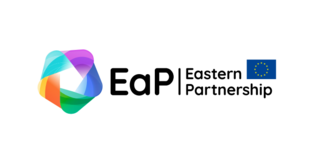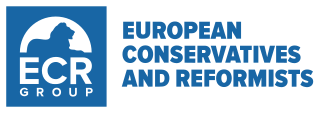Related Research Articles

The European Free Alliance (EFA) is a European political party that consists of various regionalist, separatist and minority political parties in Europe. Member parties advocate either for full political independence and sovereignty, or some form of devolution or self-governance for their country or region. The party has generally limited its membership to centre-left and left-wing parties; therefore, only a fraction of European regionalist parties are members of the EFA.

The Alliance of Liberals and Democrats for Europe Party is a European political party composed of 76 national-level parties from across Europe, mainly active in the European Union. The ALDE Party is affiliated with Liberal International and a recognised European political party, incorporated as a non-profit association under Belgian law.

The European People's Party Group is a political group of the European Parliament consisting of deputies (MEPs) from the member parties of the European People's Party (EPP). Sometimes it also includes independent MEPs and/or deputies from unaffiliated national parties. The EPP Group comprises politicians of Christian democratic, conservative and liberal-conservative orientation.
The European Democratic Group, more commonly known as European Democrats, was a conservative political group that operated in the European Parliament between 1979 and 1992. At its height in July 1979, it had 63 MEPs.
The Christian Union is a Christian democratic political party in the Netherlands. The CU is a centrist party, maintaining more progressive stances on economic, immigration and environmental issues while holding more socially conservative positions on issues such as abortion and euthanasia. The party describes itself as "social Christian".

The Hungarian Democratic Forum was a centre-right political party in Hungary. It had a Hungarian nationalist, national-conservative, Christian-democratic ideology. The party was represented continuously in the National Assembly from the restoration of democracy in 1990 until 2010. It was dissolved on 8 April 2011.

The political groups of the European Parliament are the officially recognised parliamentary groups consisting of legislators of aligned ideologies in the European Parliament.

For Fatherland and Freedom/LNNK was a free-market, national conservative political party in Latvia. In 2011, it dissolved and merged into the National Alliance.

Roberts Zīle is a Latvian economist and politician and Vice President of the European Parliament for the National Alliance, a free market national conservative right-wing populist political party in Latvia. In the seventh term of the European Parliament, he works in the European Conservatives and Reformists group; he is a member of European Conservatives and Reformists Group Executive and a member of the group Bureau. He was formerly vice-president of the now defunct Union for a Europe of Nations group.

Jan Zahradil is a Czech politician for the Civic Democratic Party (ODS) who has been Member of the European Parliament (MEP) since the Czech Republic entered the European Union in 2004. Zahradil also served as Member of the Chamber of Deputies (MP) from 1998 to 2004.

The European Christian Political Movement (ECPM) is a European political party exclusively working on promoting Christian values. The party unites national parties and individuals from across Europe who share policies influenced by Christianity, largely following the ideals of Christian democracy. The member parties are generally socially conservative and Eurosceptic.
The Movement for European Reform, abbreviated to MER, was a pan-European alliance of national centre-right political parties with conservative, pro-free market and Eurosceptic inclinations. It consisted of the Conservative Party of the United Kingdom and the Civic Democratic Party of the Czech Republic.

The Eastern Partnership (EaP) is a joint initiative of the European Union, together with its member states, and six Eastern European countries. The EaP framework governs the EU's relationship with the post-Soviet states of Armenia, Azerbaijan, Belarus, Georgia, Moldova, and Ukraine. The EaP is intended to provide a forum for discussions regarding trade, economic strategy, travel agreements, and other issues between the EU and its Eastern European neighbours. It also aims at building a common area of shared values of democracy, prosperity, stability, and increased cooperation. The project was initiated by Poland and a subsequent proposal was prepared in co-operation with Sweden. It was presented by the foreign ministers of Poland and Sweden at the EU's General Affairs and External Relations Council in Brussels on 26 May 2008. The Eastern Partnership was inaugurated by the EU in Prague, Czech Republic on 7 May 2009.

Europe of Freedom and Democracy (EFD) was a far-right, Eurosceptic political group that operated in the European Parliament from 2009 to 2014. It was composed of 34 MEPs and it existed during the European Parliament's 7th and 8th terms. After 2011, EFD had a loose relationship with the Movement for a Europe of Liberties and Democracy political party.

The European Conservatives and Reformists Group is a soft Eurosceptic, anti-federalist political group of the European Parliament. The ECR is the parliamentary group of the European Conservatives and Reformists Party European political party, but also includes MEPs from other European parties and MEPs without European party affiliation.

The 2014 European Parliament election was held in the European Union (EU) between 22 and 25 May 2014. It was the 8th parliamentary election since the first direct elections in 1979, and the first in which the European political parties fielded candidates for President of the Commission.

Freedom and Solidarity, also called Saska, is a centre-right liberal and libertarian political party in Slovakia. Established in 2009, SaS was founded by economist Richard Sulík, who designed Slovakia's flat tax system. It generally holds anti-state and neoliberal positions. After the 2020 Slovak parliamentary election, the party lost several seats in the National Council but became part of the coalition government with Ordinary People and Independent Personalities, For the People, and We Are Family. It is led by businessman Branislav Gröhling.

The European Conservatives and Reformists Party, formerly known as Alliance of European Conservatives and Reformists and Alliance of Conservatives and Reformists in Europe, is a conservative, soft Eurosceptic European political party with a main focus on reforming the European Union (EU) on the basis of Eurorealism, as opposed to total rejection of the EU (anti-EU-ism).

New Direction – The Foundation for European Reform is a political foundation at European level, think tank and publisher affiliated with the European Conservatives and Reformists Party (ECR). It was established in 2010, under the patronage of Baroness Thatcher. It is based in Brussels with satellite offices in London and Warsaw. New Direction is a free-market think tank that promotes European reform through the strengthening of accountability, transparency and democracy.

Laurențiu Rebega is a Romanian politician and since 2014, a member of the European Parliament (MEP).
References
- ↑ "Prague Declaration" of the European Conservatives and Reformists Group. Signed March 2009. Archived from the original in the Website of the Občanská demokratická strana, ODS (Civic Democratic Party) of the Czech Republic on 2011-09-27. Retrieved 2017-03-27.
- ↑ Prague Declaration on ECR website